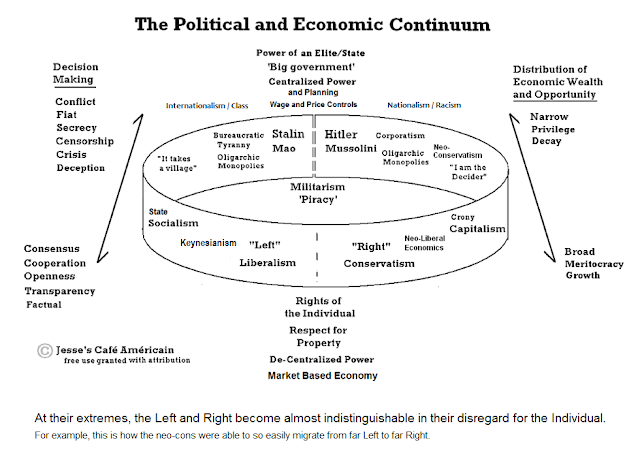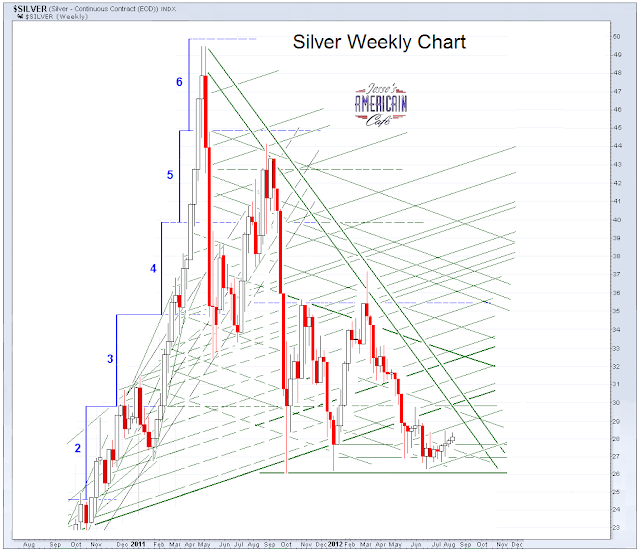One thing that Parenti does not discuss is the similarity between state communism and fascism in their anti-humanism, central planning, and self-destructive fanaticism.
Many thinkers distinguish between fascism and communism in their attitude toward globalization: the fascists are nationalists and the communists are internationalists.
I believe that my model of the socio-political continuum bridges that gap by referencing the extremes against a measure of their attitude towards the individual as a reference, and not in their approach to how they might organize a world government to which they all seem to aspire.
It also helps to explain how easily parties can cross the divide between the extremes. A Hitler can take a workers party like the NSDAP and turn it into a fascist dictatorship. The neo-cons can morph from far left to far right.
Extremes call out to their opposite extremes. Communism breeds fascism, and vice versa. Extremes breed extremes, and crowd out the balanced approach to life of the mind, body, and spirit.
And those on the extremes can no longer see the middle ground; everything becomes 'the other.' And so they first fail by avoiding all compromise as a sign of weakness in their increasing ideological rigidity, and then compound error upon extreme error as they silence their critics. Their errors compounded, they finally take themselves and their followers into the abyss of their own excess.
Parenti is certainly further to the left of my own views. He seems to be a progressive by much more comfortable with the role of government. And yet government has a role.
One may not make the poor better off by destroying the rich, but one can certainly help the greater part of the public from becoming poor by restraining the rich and the powerful with the rule of law, transparency and enforcement, and equal justice for all. And that requires a good government with the power and willingness to enforce the law.
Great wealth unexplained is often the accumulation of a series of crimes and illegalities undiscovered, from insider trading to market manipulation, monopolies and official corruption, occasionally mixed in with sheer dumb luck and ruthless disregard for the law.
That is why the wealthy are rarely the great artists, athletes, or inventors who they hold up as the example of excellence to which they can hardly presume. They modern wealthy generally create nothing except a climate of injustice, fraud, and corruption.
"Le secret des grandes fortunes sans cause apparente est un crime
oublié, parce qu' il a été proprement fait."
"The secret of a great success for which you are at a loss to account
is a crime that has never been found out, because it was well executed."
Honoré de Balzac, Le Père Goriot


































